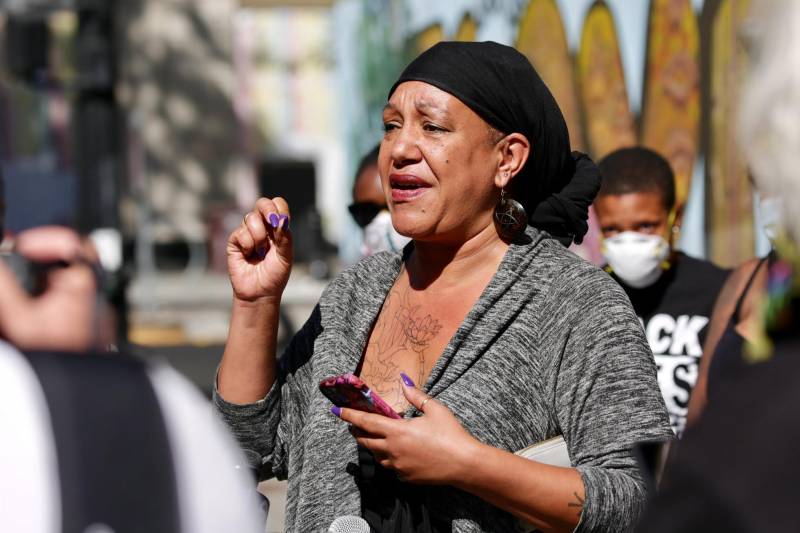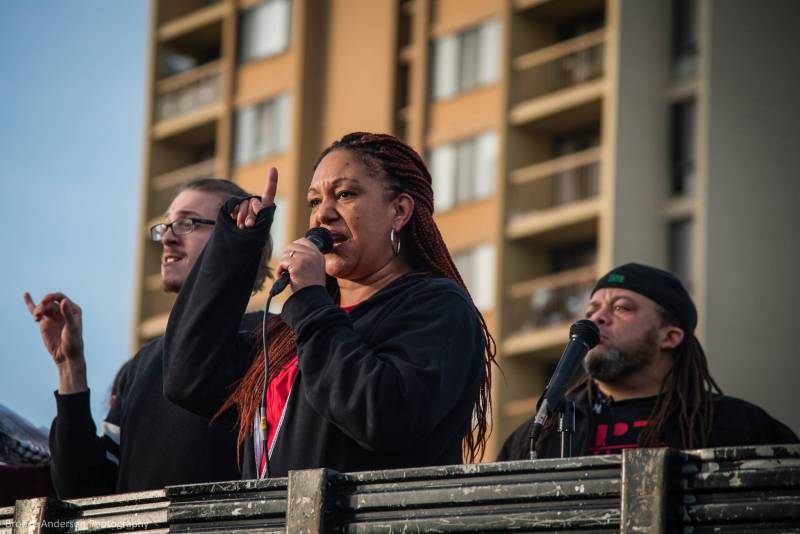In January of this year, Cat Brooks and the Anti Police-Terror Project launched a service where trained professionals are called to respond to mental health crises; it’s an alternative to people calling the police to handle the situation.
Mental Health First, or M.H. First, initially launched in Sacramento, and began serving Oakland this summer.
Around the same time, Oakland’s City Council set aside $1.35 million to fund the Mobile Assistance Community Responders of Oakland (MACRO) program– which has a similar aim as M.H. First. But MACRO’s services leave a gap in coverage, as its hour of operation coincide with the traditional work week.
“If you’re fortunate enough to have your mental health breakdown between the hours of 9:00 to 5:00, Monday through Friday, you might get some help,” Brooks says facetiously. “Other than that, you know, it’s 9-1-1.”
Without trained mental health professionals, police interactions can be deadly. The Washington Post’s police shooting database reports that nationally over the past year, around a quarter of those killed by police officers are people with mental health issues.

Brooks says that M.H. First is just one part of the effort to refund the community and divest from overspending on police.
This week on Rightnowish, Brooks discusses M.H. First, the racism she encountered as a young person and she traces her organizing origins back to the killing of Oscar Grant– a case which was recently been reopened.
Below are lightly edited excerpts of my conversation with Cat Brooks.
PEN: I’ll just ask you blatantly: Why not go through established police departments?
CAT: Well, nationally one in four people gunned down by law enforcement are in the middle of a mental health crisis. Police are not trained, nor do they actually want to do this work. Oakland Police Department will say ‘well, we’ve got crisis intervention training.’ In municipalities across the country, [this training] is usually eight to fifteen hours. To be a mental health professional requires thousands of hours before you can work with someone professionally.
The other reason is that police are trained to force compliance and to do that through violence and force if necessary. And so when law enforcement shows up, your job is to do what they say when they say it, how fast they say it and the way in which they say it. And just not doing any of those things can get somebody seriously injured or killed as we see, you know, daily… People in mental health crisis or who may not be sharing our reality often cannot respond to those commands, do not understand those commands, which law enforcement is trained to see as somebody resisting.



